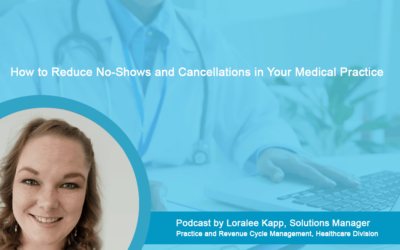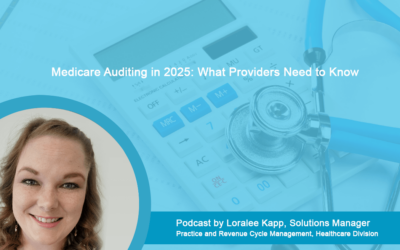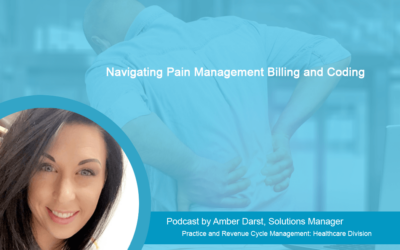Outsource Strategies International (OSI), a professional gastroenterology medical billing company in U.S., has extensive experience in providing medical billing and coding services for various specialties.
In today’s podcast, Natalie Tornese one of our Senior Solutions Managers, discusses Gastroenterology and Digestive Diseases and their ICD-10 Codes.
Read Transcript
If you are experiencing severe abdominal pain, nausea or bloating, it could be a serious sign of a gastrointestinal condition that may require immediate medical attention. Gastrointestinal problems are common even though most people don’t like to talk about them. Gastrointestinal disorders refer to any condition or disease that occurs within the gastrointestinal tract. Problems occur when nerves or muscles in any portion of the GI tract do not function in a coordinated manner or when the sensitivity of the nerves of the intestines becomes impaired. Symptoms can include pain, abdominal distension, heartburn, nausea, constipation and vomiting. These illnesses are commonly treated by a gastroenterologist. Many of these conditions can be effectively prevented or minimized by maintaining a healthy lifestyle, practicing good bowel habits, and consuming over-the-counter medications.
Gastrointestinal disorders are causing an unprecedented number of clinic visits and hospitalizations. Gastroenterologists need to document the correct diagnosis of symptoms, treatment, and coding of different types of gastrointestinal disorders. However, with all the changing guidelines, coding and billing for these disorders can be a complex task.
I’m going to include a transcript along with this podcast to outline the ICD-10 coding for the conditions that I will be talking about.
The first condition is Gastroesophageal Reflux Disease, commonly referred to as GERD. Gastroesophageal reflux disease is a common digestive disorder that arises when the stomach acid backs up or refluxes in to the esophagus. This condition can cause a burning sensation known as heartburn in the chest. Generally caused by frequent acid reflux, the condition occurs among people of all age groups. However, it is more common among obese or overweight people, pregnant women, active or secondhand smokers, and people who consume certain kinds of medications. Heartburn or a burning sensation in your chest, usually after eating is one of the common symptoms associated with the condition.
(ICD-10 codes for 5 Gastroenterology and Digestive Diseases are:
Gastroesophageal Reflux Disease (GERD)
- K21: Gastro-esophageal reflux disease
- K21.0: Gastro-esophageal reflux disease with esophagitis
- K21.9: Gastro-esophageal reflux disease without esophagitis
Irritable Bowel Syndrome (IBS)
- K58: Irritable bowel syndrome
- K58.0: Irritable bowel syndrome with diarrhea
- K58.1: Irritable bowel syndrome with constipation
- K58.2: Mixed irritable bowel syndrome
- K58.8: Other irritable bowel syndrome
- K58.9: Irritable bowel syndrome without diarrhea
Ulcerative Colitis
- K51: Ulcerative colitis
- K51.0: Ulcerative (chronic) pancolitis
- K51.2: Ulcerative (chronic) proctitis
- K51.3: Ulcerative (chronic) rectosigmoiditis
- K51.5: Left sided colitis
- K51.8: Other ulcerative colitis
- K51.9: Ulcerative colitis, unspecified
Gastritis
- K29: Gastritis and duodenitis
- K29.0: Acute gastritis
- K29.2: Alcoholic gastritis
- K29.3: Chronic superficial gastritis
- K29.4: Chronic atrophic gastritis
- K29.5: Unspecified chronic gastritis
- K29.6: Other gastritis
- K29.7: Gastritis, unspecified
Gallstones
- K80: Cholelithiasis
- K80.1: Calculus of gallbladder with other cholecystitis
- K80.2: Calculus of gallbladder without cholecystitis
- K80.3: Calculus of bile duct with cholangitis
- K80.4: Calculus of bile duct with cholecystitis
- K80.5: Calculus of bile duct without cholangitis or cholecystitis
- K80.6: Calculus of gallbladder and bile duct with cholecystitis
- K80.7: Calculus of gallbladder and bile duct without cholecystitis
- K80.8: Other cholelithiasis
- K81: Cholecystitis)
The next one is Irritable Bowel Syndrome known as IBS. That’s a disorder that affects the digestive system, particularly the large intestine. It’s also known as spastic colitis or irritable colon. It is a group of intestinal symptoms that typically occur together and cause inflammation in the digestive tract. This condition affects about 45 million people in the US, and women are almost twice as likely to develop it as men. The onset is usually before the age of 35 and that’s an almost half of the cases. Common symptoms can include abdominal pain, cramping or bloating, nausea, excess gas and a change in bowel habits.
The next one is Ulcerative Colitis. Ulcerative colitis is a chronic inflammatory bowel disease that causes long-term inflammation and ulcers in the digestive tract. The condition occurs when the innermost lining of the large intestine, rectum or both, get inflamed, producing tiny sores called ulcers on the lining of your colon. The exact cause for this remains unclear, but researcher’s claim immune system malfunctions are one possible cause. Treatment involves anti-inflammatory drugs that can help reduce the inflammation; if medications alone are not effective, surgery to remove part of the colon or the colon can be an option.
Gastritis is inflammation of the protective lining of the stomach. The inflammation is often the result of a bacterial infection. In addition, regular use of certain pain relievers and drinking too much alcohol can also contribute to gastritis. Symptoms of include abdominal pain nausea and vomiting, loss of appetite, bloating, burping and belching. If left untreated, gastritis can lead to stomach ulcers and stomach bleeding.
The next one is Gallstones. Gallstones are hardened deposits of digestive fluid, usually made of cholesterol or bilirubin that forms in your gall bladder or bile duct. These stones can form when there is a chemical imbalance in the gallbladder. These can be tiny or may be as large as a golf ball. Gallstones don’t cause any symptoms and don’t need any treatment in general. But if a gallstone becomes trapped in an opening inside the gall bladder, it can trigger a sudden intense pain known as colic. Treatment for this condition usually involves medications to dissolve the gallstones and in more complex cases, may be gallbladder removal surgery.
From embarrassing gas to uncomfortable heartburn, everyone suffers from gastrointestinal disorders from time to time. Many of the symptoms of these disorders can be prevented or minimized by making adequate changes in diet and lifestyle habits. Following healthy lifestyle like avoiding fatty foods, practicing good bowel habits, drinking plenty of water, and consuming a high-fiber healthy diet can help prevent the complications of gastrointestinal disorders.
I hope this helps, but always remember that documentation and a thorough knowledge of pay regulations and guidelines is great to go to ensure accurate reimbursement for the procedures performed.
Thank you for listening!



